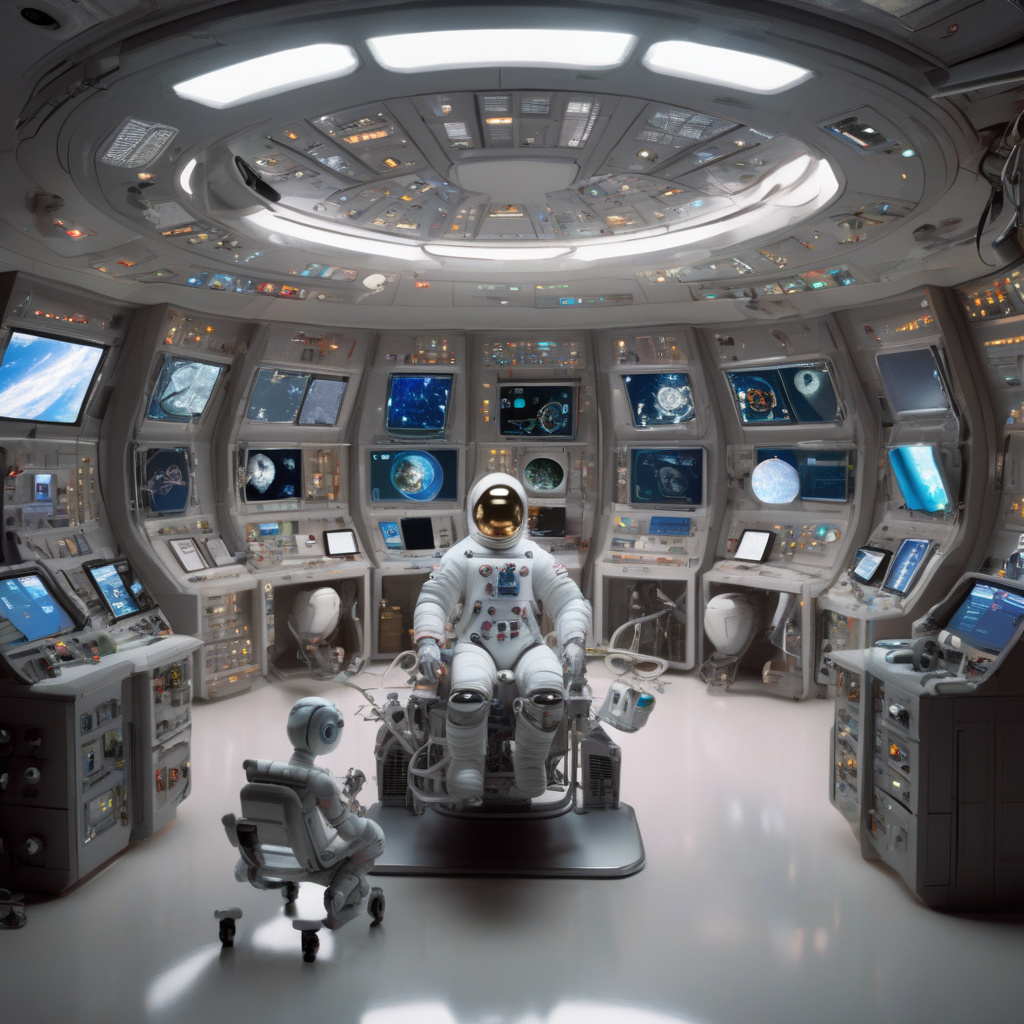NASA’s upcoming human missions to the Moon mark a significant milestone under the Artemis program. These missions not only represent a giant leap for space exploration but also pose unique challenges, especially concerning the health and well-being of astronauts in deep space. In a groundbreaking collaboration, NASA and Google are pioneering the use of artificial intelligence (AI) to revolutionize medical care for astronauts during these extended missions.
The integration of AI into space medicine holds immense promise for enhancing healthcare delivery beyond Earth. Imagine a scenario where astronauts, millions of miles away from Earth, receive real-time medical assistance for various health issues. This vision is becoming a reality through the joint efforts of NASA and Google, leveraging AI technologies to provide astronauts with advanced medical care capabilities in space.
One of the key advantages of using AI in space medicine is its potential to assist astronauts in diagnosing and treating medical conditions autonomously. In the harsh environment of space, where access to specialized medical professionals is limited, AI-powered systems can analyze symptoms, recommend treatment options, and even perform basic medical procedures under the guidance of astronauts. This level of medical autonomy is crucial for ensuring the health and safety of crew members during long-duration missions.
Moreover, AI algorithms can continuously monitor astronauts’ health parameters, detect early signs of potential health issues, and provide personalized recommendations for maintaining optimal well-being in space. By leveraging machine learning and predictive analytics, these AI systems can anticipate medical emergencies, mitigate risks, and streamline medical decision-making processes onboard spacecraft.
The collaboration between NASA and Google represents a significant step forward in the convergence of space exploration and AI technologies. By harnessing the power of AI to support astronauts with medical care, this partnership sets a new standard for healthcare delivery in space missions. The integration of AI-driven medical systems not only enhances the efficiency of medical interventions but also empowers astronauts to take charge of their health in the challenging environment of space.
As we look towards a future where human presence in space becomes more commonplace, the role of AI in space medicine will continue to expand. From facilitating remote surgeries to enabling telemedicine consultations with Earth-based healthcare providers, AI has the potential to revolutionize healthcare delivery in space in ways previously unimaginable. This collaboration between NASA and Google serves as a testament to the transformative impact of AI on the future of space exploration and human life beyond Earth.
In conclusion, the joint initiative by NASA and Google to test AI for assisting astronauts with medical care heralds a new era of innovation in space medicine. By harnessing the capabilities of AI, astronauts embarking on deep space missions will have access to advanced medical support systems that ensure their health and well-being throughout their journey. This pioneering partnership not only showcases the power of technology in enhancing space exploration but also underscores the importance of prioritizing human health in the quest for new frontiers in the cosmos.

